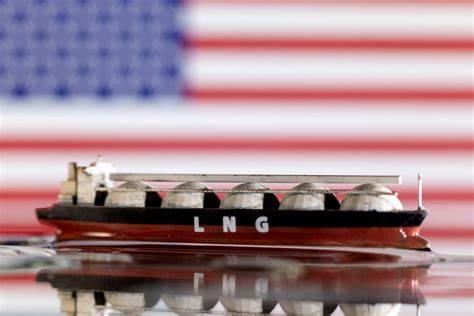Oil & Gas
USTR BACKTRACKS ON LNG AND VEHICLE CARRIER PENALTIES IN BID TO BALANCE TRADE, SECURITY, AND INDUSTRY PRESSURES.
JUMA SULEIMAN

In a recalibrated move that highlights the intersection of geopolitical strategy and economic realism, the U.S. Trade Representative (USTR) has significantly softened its proposed regulations targeting non-U.S.-built LNG tankers and vehicle carriers. The initial draft aimed to pressure China by penalizing foreign-built ships servicing the American market, but sparked fierce opposition from U.S. energy and shipping sectors. These industries argued the restrictions could undermine U.S. liquefied natural gas (LNG) competitiveness abroad and hinder military logistics domestically. In response, the USTR eliminated penalties tied to LNG exports failing to use U.S.-built ships, reduced port fees for foreign-built roll-on/roll-off (RoRo) car carriers, and provided exemptions for vessels under the U.S. Maritime Security Program (MSP) that support national defense readiness. The revised framework now excludes LNG carriers from export license threats and adjusts car carrier fees from a flat $150 per vehicle capacity to a tonnage-based model, reducing burdens on major players like Wallenius Wilhelmsen and American Roll-On, Roll-Off Carrier Group. These changes indicate a strategic pivot one that still underscores the U.S. intention to rebuild its maritime industrial base while avoiding economic self-harm in the process.
Economically, the revised rules reflect a more nuanced understanding of global trade realities. LNG exporters had warned that the previous mandate, requiring a growing percentage of LNG shipments to use U.S.-built vessels starting in 2029, would drive up costs and jeopardize long-term contracts in Asia and Europe. Similarly, vehicle exporters like BMW and John Deere, which rely on RoRo ships to move U.S.-made products abroad, risked losing access to competitive shipping options under the prior fee structure. The softened proposals ease immediate concerns for U.S. businesses operating in global markets while still signaling Washington’s intent to shift trade dependence away from China. Business groups and trade attorneys, however, remain wary of the broad language still referencing “non-U.S.-built” vessels, calling for clearer exclusions and legal guardrails. With public comment open until July 7, the revised policy remains a live issue one that will continue to shape America’s role in global energy exports and maritime commerce, as well as its economic leverage against rival nations.
